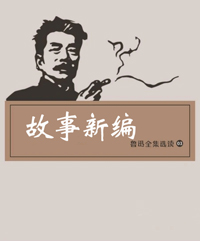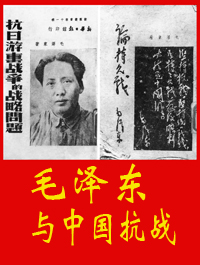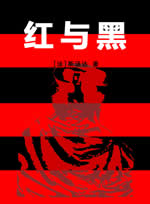This justice must be rendered to the police of that period, that even in the most serious public junctures, it imperturbably fulfilled its duties connected with the sewers and surveillance. A revolt was, in its eyes, no pretext for allowing malefactors to take the bit in their own mouths, and for neglecting society for the reason that the government was in peril. The ordinary service was performed correctly in company with the extraordinary service, and was not troubled by the latter. In the midst of an incalculable political event already begun, under the pressure of a possible revolution, a police agent, "spun" a thief without allowing himself to be distracted by insurrection and barricades.
It was something precisely parallel which took place on the afternoon of the 6th of June on the banks of the Seine, on the slope of the right shore, a little beyond the Pont des Invalides.
There is no longer any bank there now. The aspect of the locality has changed.
On that bank, two men, separated by a certain distance, seemed to be watching each other while mutually avoiding each other. The one who was in advance was trying to get away, the one in the rear was trying to overtake the other.
It was like a game of checkers played at a distance and in silence. Neither seemed to be in any hurry, and both walked slowly, as though each of them feared by too much haste to make his partner redouble his pace.
One would have said that it was an appetite following its prey, and purposely without wearing the air of doing so. The prey was crafty and on its guard.
The proper relations between the hunted pole-cat and the hunting dog were observed. The one who was seeking to escape had an insignificant mien and not an impressive appearance; the one who was seeking to seize him was rude of aspect, and must have been rude to encounter.
The first, conscious that he was the more feeble, avoided the second; but he avoided him in a manner which was deeply furious; any one who could have observed him would have discerned in his eyes the sombre hostility of flight, and all the menace that fear contains.
The shore was deserted; there were no passers-by; not even a boatman nor a lighter-man was in the skiffs which were moored here and there.
It was not easy to see these two men, except from the quay opposite, and to any person who had scrutinized them at that distance, the man who was in advance would have appeared like a bristling, tattered, and equivocal being, who was uneasy and trembling beneath a ragged blouse, and the other like a classic and official personage, wearing the frock-coat of authority buttoned to the chin.
Perchance the reader might recognize these two men, if he were to see them closer at hand.
What was the object of the second man?
Probably to succeed in clothing the first more warmly.
When a man clothed by the state pursues a man in rags, it is in order to make of him a man who is also clothed by the state. Only, the whole question lies in the color. To be dressed in blue is glorious; to be dressed in red is disagreeable.
There is a purple from below.
It is probably some unpleasantness and some purple of this sort which the first man is desirous of shirking.
If the other allowed him to walk on, and had not seized him as yet, it was, judging from all appearances, in the hope of seeing him lead up to some significant meeting-place and to some group worth catching. This delicate operation is called "spinning."
What renders this conjecture entirely probable is that the buttoned-up man, on catching sight from the shore of a hackney-coach on the quay as it was passing along empty, made a sign to the driver; the driver understood, evidently recognized the person with whom he had to deal, turned about and began to follow the two men at the top of the quay, at a foot-pace. This was not observed by the slouching and tattered personage who was in advance.
The hackney-coach rolled along the trees of the Champs-Elysees. The bust of the driver, whip in hand, could be seen moving along above the parapet.
One of the secret instructions of the police authorities to their agents contains this article: "Always have on hand a hackney-coach, in case of emergency."
While these two men were manoeuvring, each on his own side, with irreproachable strategy, they approached an inclined plane on the quay which descended to the shore, and which permitted cab-drivers arriving from Passy to come to the river and water their horses. This inclined plane was suppressed later on, for the sake of symmetry; horses may die of thirst, but the eye is gratified.
It is probable that the man in the blouse had intended to ascend this inclined plane, with a view to making his escape into the Champs-Elysees, a place ornamented with trees, but, in return, much infested with policemen, and where the other could easily exercise violence.
This point on the quay is not very far distant from the house brought to Paris from Moret in 1824, by Colonel Brack, and designated as "the house of Francois I." A guard house is situated close at hand.
To the great surprise of his watcher, the man who was being tracked did not mount by the inclined plane for watering. He continued to advance along the quay on the shore.
His position was visibly becoming critical.
What was he intending to do, if not to throw himself into the Seine?
Henceforth, there existed no means of ascending to the quay; there was no other inclined plane, no staircase; and they were near the spot, marked by the bend in the Seine towards the Pont de Jena, where the bank, growing constantly narrower, ended in a slender tongue,and was lost in the water. There he would inevitably find himself blocked between the perpendicular wall on his right, the river on his left and in front of him, and the authorities on his heels.
It is true that this termination of the shore was hidden from sight by a heap of rubbish six or seven feet in height, produced by some demolition or other. But did this man hope to conceal himself effectually behind that heap of rubbish, which one need but skirt? The expedient would have been puerile. He certainly was not dreaming of such a thing. The innocence of thieves does not extend to that point.
The pile of rubbish formed a sort of projection at the water's edge, which was prolonged in a promontory as far as the wall of the quay.
The man who was being followed arrived at this little mound and went round it, so that he ceased to be seen by the other.
The latter, as he did not see, could not be seen; he took advantage of this fact to abandon all dissimulation and to walk very rapidly. In a few moments, he had reached the rubbish heap and passed round it. There he halted in sheer amazement. The man whom he had been pursuing was no longer there.
Total eclipse of the man in the blouse.
The shore, beginning with the rubbish heap, was only about thirty paces long, then it plunged into the water which beat against the wall of the quay. The fugitive could not have thrown himself into the Seine without being seen by the man who was following him. What had become of him?
The man in the buttoned-up coat walked to the extremity of the shore, and remained there in thought for a moment, his fists clenched, his eyes searching. All at once he smote his brow. He had just perceived, at the point where the land came to an end and the water began, a large iron grating, low, arched, garnished with a heavy lock and with three massive hinges. This grating, a sort of door pierced at the base of the quay, opened on the river as well as on the shore. A blackish stream passed under it. This stream discharged into the Seine.
Beyond the heavy, rusty iron bars, a sort of dark and vaulted corridor could be descried. The man folded his arms and stared at the grating with an air of reproach.
As this gaze did not suffice, he tried to thrust it aside; he shook it, it resisted solidly. It is probable that it had just been opened, although no sound had been heard, a singular circumstance in so rusty a grating; but it is certain that it had been closed again. This indicated that the man before whom that door had just opened had not a hook but a key.
This evidence suddenly burst upon the mind of the man who was trying to move the grating, and evoked from him this indignant ejaculation:
"That is too much! A government key!"
Then, immediately regaining his composure, he expressed a whole world of interior ideas by this outburst of monosyllables accented almost ironically: "Come! Come! Come! Come!"
That said, and in the hope of something or other, either that he should see the man emerge or other men enter, he posted himself on the watch behind a heap of rubbish, with the patient rage of a pointer.
The hackney-coach, which regulated all its movements on his, had, in its turn, halted on the quay above him, close to the parapet. The coachman, foreseeing a prolonged wait, encased his horses' muzzles in the bag of oats which is damp at the bottom, and which is so familiar to Parisians, to whom, be it said in parenthesis, the Government sometimes applies it. The rare passers-by on the Pont de Jena turned their heads, before they pursued their way, to take a momentary glance at these two motionless items in the landscape, the man on the shore, the carriage on the quay.
我们应当公正地承认,即使在局势最严重的时刻,当时的警察仍镇静地尽到他们的道路管理和监视的责任。在他们看来,决不能让坏人把一次暴动当作胡作非为的借口,他们不能因政府多难而对社会有所疏忽。在执行特殊的任务时正常的职务也准确完成,并不受到干扰。在已开始的无数的政治事变中,在可能发生革命的压力下,并没有被起义和街垒所分心,有个警察正在跟踪一个小偷。
六月六日下午,在塞纳河右河滩残废军人院桥过去一点的地方发生的正是这类事件。
今天在那儿已没有河滩了,这一带的面貌现在也已改观。
在这段河滩上,隔着一段距离的两个人好象在互相注视着,一个在躲着另一个。在前面走着的人设法远离,在后面跟着的人则尽量接近。
这好象是远远地无声地在下着一局棋。这一个和那一个似乎都不匆忙,两个人都缓步而行,好象谁都怕因步子太急会使对方加快步伐。
就象一个馋嘴跟着一个猎物,但又不显出有意这样做的神气。那猎物是阴险的,它有所提防。
在被追捕的黄鼠狼和猎狗之间所要求的距离被保持着。设法想逃走的那个人个子不大、面容消瘦;想捕获的那个人身材高大,相貌粗鲁,和他打交道一定很不好受。
第一个,感到自己是最弱的,要逃避第二个;但逃避时神态相当愤怒,谁要是观察他就能看到,他的目光里露出逃窜时阴沉的敌对情绪和在恐惧时感受到的威胁。
河滩荒僻,没有一个过路人;这里那里停泊着的驳船上也没有船夫,也没有装卸工人。
人们只能在河岸对面才容易看清这两个人,在这一距离谁要是观察到他们的话,便可看见前面走的那个好象一个毛发耸立的人,衣衫褴褛,躲躲闪闪,心情焦急,在破罩衫下发抖;而另一个象是个典型的公务人员,穿着那种纽子一直扣到下颏的制服。
读者如果在比较近的地方去看这两个人,那可能是认识他们的。
后面一个人的目的何在呢?
大概要使第一个人穿得暖和一些吧!
当一个穿着国家发的制服的人去追捕一个衣衫褴褛的人时,其目的是使那人也穿上国家发的制服。但颜色是个关键。
穿上蓝色服装是光荣的,穿上红色衣衫是倒霉的。
有一种下等的紫红色①。
①罗马帝王穿紫袍。此处指囚犯穿的红衣。
第一个人想逃避的大概是某些烦恼和这类紫红色的服装。
如果另一个让他在前面走而不逮捕他,那是因为,从表面现象看来,希望能发现他去赴一个有意义的约会或到一群值得抓的人那里去。这种微妙的行动便称为“放长线”。
这个推测可能完全正确,因为扣好纽子的人看见河滩上一辆空马车走过,就向车夫做了个手势,车夫也已会意,很明显他知道在跟什么人打交道,就把马转过来并开始慢步在高岸上跟着这两个人。这些并没有被那走在前面的衣衫褴褛的可疑的人所看见。
街车沿着爱丽舍广场的树木滚动着,人们可以在护墙上看见车夫的上半身过去了,他手里拿着马鞭。
警署对警察的秘密指示中有一条,内容是“身边总得有一辆街车备用”。
当他们各自都在进行无可指责的战略时,两人走到了一个通往河滩的斜坡,当时从巴喜来的马车夫可以从这斜坡到河边饮马。为了整齐对称,这个斜坡后来被整修不存在了。马儿渴得要死,但人的眼睛是舒适了。
看来穿罩衫的人要上这斜坡,设法逃入树木成林的爱丽舍广场,但那儿警察密布,是另一个人下手很方便的地方。
河岸的这一处离开一八二四年勃拉克上校从莫雷移到巴黎的房屋不太远,这所房子叫做“弗朗索瓦一世住宅”,附近有一个卫队。
使监视者大为惊奇的是,被追捕者不沿着饮水的斜坡走上来,却继续在河滩上沿着河岸前进。
他的处境显然很危急。
除非是想跳进塞纳河,不然去干什么呢?
从此没有办法再上河岸了,不再有斜坡,也没有阶梯,他已到了塞纳河拐弯处接近耶拿桥的地方,那儿的河滩越来越窄,最后成一细条而在水中淹没,在这里他将不可避免地夹在右边的陡墙和左边及前方的河流中,后面有公安人员跟踪。
这边河滩的尽头确实被一堆六七尺高的不知拆毁了什么而留下的废料挡住了视线。难道这个人以为躲在这堆别人只要一绕就到的瓦砾后就行了?这种应付的方法是幼稚的。他肯定不想这么干。小偷还不至于天真到如此程度。这堆瓦砾在水边堆成小丘,延伸到河岸的高墙那里,就象海岬一样。
被追踪者到了这个小丘就越了过去,使他不再被另外那个人看见。
那个人,他既看不见,也没被人看见,他就利用这点,不再遮掩,飞步前进。一会儿就到了那堆垃圾,绕了过去,在那儿,他吃惊地停了下来,他追捕的人已经不在了。
穿罩衫的人已完全失踪。
从废物堆起河滩的长度连三十步都不到,接着就没入冲击岸墙的水中。
这个逃亡者不可能在跳入塞纳河或爬上河岸时不被跟踪的人望见,他到哪儿去了呢?
穿着扣好纽子的长大衣的人一直走到河滩尽头,在那里沉思片刻,两拳起了痉挛,极目搜索。忽然间他拍着自己的额头。他发现在土地和水的接连处,有一扇宽矮的拱形铁栅门,装有很厚的一把锁和三根粗铰链。这是一种装在河岸下方,半露水面半在水下的铁栅门,一股黑水从下面流出,泻入塞纳河。
在生锈的粗铁栅栏后面,可以清楚地看到一种有拱顶的阴暗长廊。
这个人两臂交叉在胸前,用谴责的神情望着铁栅栏。他望着还不够,还试图推动铁门,他摇它,门却很坚固,摇不动。大概它刚才被打开了,奇怪的是铁栅门已锈成这样,然而没有听见一点声音,但肯定门是又被关上了。这说明这个开门的人用的不是弯钩,而是一把钥匙。
这种明确的证据立刻使摇门者恍然大悟并使他发出这样愤怒的感叹:
“这未免太不象话了!有着一把公家的钥匙!”
然后他又立刻平静下来,一口气喷出带讽刺味的有力的单音节字,表达了他内心的许多想法:
“妙!妙!妙!妙!”
说完后,不知还抱着什么希望,或者是想看那个人再出来,或者想看到别的人进去,他埋伏在那堆废物后面守候着,怀着猎狗那种耐心的愤激。
至于在他的一切举动之后紧跟着的街车也在他上面靠近河栏杆处停下来。马车夫预料到将有长时间的停留,就把马鼻子套在巴黎人很熟悉的打湿了的燕麦麻袋里,顺便提一下,政府有时把袋子套到他们嘴上①。耶拿桥稀少的行人,在走远之前,回头看一下景色中这不动的两点,河滩上的人,河岸边的马车。
①嘴上了套,使他们不能说话。






